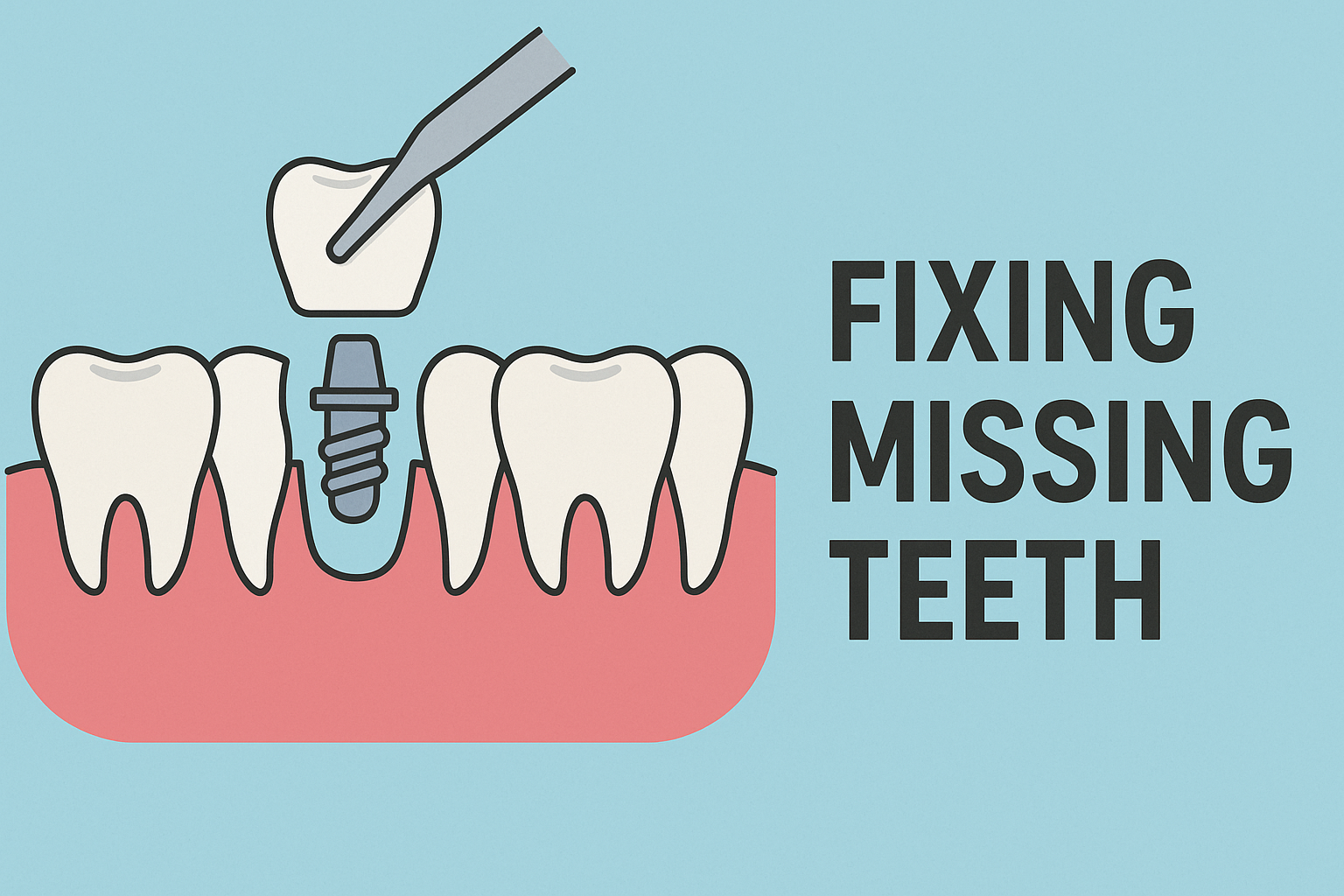How to fix missing teeth: Exploring your options
Missing teeth can impact more than just your smile—they can affect your overall health and confidence. From dental implants to dentures and bridges, several options can help restore your grin. This article explores the benefits, drawbacks, and costs of each solution to help you choose the best and most affordable option for your dental needs today.

Understanding the emotional and physical impacts of missing teeth
Missing teeth can significantly impact an individual’s self-esteem and quality of life. A person may feel less confident in social situations, leading to feelings of embarrassment or anxiety. Additionally, it’s worth noting that the loss of teeth can affect speech clarity. This is especially true for front teeth, which play a crucial role in articulating certain sounds. Beyond aesthetics, there are physical consequences as well. When a tooth is missing, the surrounding teeth may shift, leading to misalignment. This can complicate future dental procedures and even cause jaw discomfort or pain over time.
Dental implants: The gold standard for tooth replacement
Dental implants are often considered the best solution for missing teeth. They involve placing a titanium post into the jawbone, which acts as a root for a replacement tooth. This procedure has a success rate of around 95% and is known for providing a natural look and feel.
One of the biggest advantages of dental implants is durability. With proper care, they can last a lifetime, making them a long-term investment in your health and confidence. However, it’s important to note that not everyone is a viable candidate for implants. Factors such as bone density and overall health may affect eligibility. Additionally, the process can be quite costly, often ranging from $3,000 to $4,500 per implant, which may not be covered by insurance.
Bridges: A temporary fix with lasting benefits
Dental bridges are a popular alternative to implants and provide a solution by bridging the gap left by missing teeth. A bridge typically consists of two crowns on either side of the gap, supporting one or more artificial teeth in between. They are less invasive than implants and can usually be completed in just a few visits. Bridges can also help maintain facial structure and prevent remaining teeth from shifting. However, they require the alteration of neighboring teeth, which some individuals may find concerning.
Cost-wise, bridges can be more affordable than dental implants, usually ranging from $2,000 to $5,000, depending on the complexity and materials used. This makes them an attractive option for many patients. However, their lifespan is typically 5-15 years, so they might need replacing over time.
Dentures: A removable option for missing teeth
For individuals with multiple missing teeth or those who are partially edentulous, dentures provide a practical solution. They can be either complete (for those missing all their teeth) or partial (for those missing some). Dentures mimic the appearance of natural teeth and can significantly improve one’s smile and ability to chew.
While they are a less expensive option—typically ranging from $600 to $8,000 depending on quality and customization—dentures can have their drawbacks. They require regular maintenance and adjustments and may not provide the same level of comfort or support as implants. Some users report an adjustment period, during which they learn to eat and speak with their new dentures effectively.
Factors to consider when choosing a solution
When deciding how to fix missing teeth, it’s essential to consider several factors:
- Your budget: Determine how much you are willing to spend on your dental restoration. Some options, like implants, may require more substantial initial investments.
- Your health: Consult with your dentist about your overall health and any conditions that might affect your eligibility for certain treatments.
- Longevity: Some solutions last longer than others. Consider how long you expect each treatment to last based on your lifestyle and oral hygiene practices.
- Lifestyle and convenience: Think about how much time and effort you are willing to dedicate to care and maintenance. Permanent options like implants may demand less day-to-day attention than dentures.
- Goal: Ask yourself what your primary goal is. Is it restoring function, aesthetics, or both? Understanding your priorities can guide your choice.
The next steps towards restoring your smile
Once you’ve weighed the different options and assessed your priorities, it’s time to take action. Start by scheduling a consultation with a licensed dentist or oral surgeon. During this appointment, they will evaluate your oral health, discuss the available solutions, and help you determine the best course of action. Additionally, inquire about financing options. Many dental practices offer payment plans to make treatments more manageable. Look into insurance coverage; some policies may cover a portion of the costs associated with tooth replacement.
Finally, as you embark on this journey to restore missing teeth, it’s essential to maintain regular dental check-ups and practice good oral hygiene. Your efforts will not only enhance the longevity of your restoration but also improve your overall dental health.